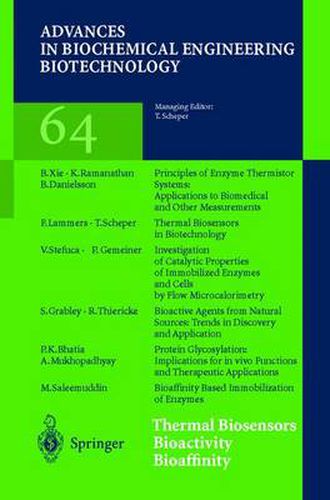Readings Newsletter
Become a Readings Member to make your shopping experience even easier.
Sign in or sign up for free!
You’re not far away from qualifying for FREE standard shipping within Australia
You’ve qualified for FREE standard shipping within Australia
The cart is loading…






This title is printed to order. This book may have been self-published. If so, we cannot guarantee the quality of the content. In the main most books will have gone through the editing process however some may not. We therefore suggest that you be aware of this before ordering this book. If in doubt check either the author or publisher’s details as we are unable to accept any returns unless they are faulty. Please contact us if you have any questions.
The immobilized biocatalyst (IMB) is a key component of biotransformation systems that are used to transform substrates to desired products. The impro- ment of biocatalyst properties has a direct influence on the overall effectiveness of the process based on the biotransformation. The basic catalytic characte- stics of biocatalyst that are followed include kinetic properties, pH optima, stability,and inhibition. The investigation of catalytic properties of immobilized enzymes is still a time consuming procedure and is not always simple. In the 1980s,a major effort was made to standardize the rules by which IMB is char- terized. The Working Party of EFB on immobilized biocatalysts has formul- ed principles of individual methods, among them the requirement of kinetic characterization [1]. It was recommended to use a packed-bed reactor,equipped with temperature control and with infinite flow circulation. The system should be equipped with a post-column unit to measure the time-dependence of the product or substrate concentration [2, 3], the most commonly used analytical methods being spectrophotometry, chemiluminiscence, automatic titration, bioluminiscence, chromatography, polarimetry, and biosensors based on the oxygen electrode. There are two main drawbacks to the application of these methods: 1. The need to vary the analytical principles, depending on the chemical and physical-chemical properties of analytes; 2. In some cases, mainly in the study of hydrolytic enzymes, the natural s- strate must be replaced by an artificial one,that is chromolytic,chromogenic, chemiluminiscent,bioluminiscent,or fluorescent.
$9.00 standard shipping within Australia
FREE standard shipping within Australia for orders over $100.00
Express & International shipping calculated at checkout
This title is printed to order. This book may have been self-published. If so, we cannot guarantee the quality of the content. In the main most books will have gone through the editing process however some may not. We therefore suggest that you be aware of this before ordering this book. If in doubt check either the author or publisher’s details as we are unable to accept any returns unless they are faulty. Please contact us if you have any questions.
The immobilized biocatalyst (IMB) is a key component of biotransformation systems that are used to transform substrates to desired products. The impro- ment of biocatalyst properties has a direct influence on the overall effectiveness of the process based on the biotransformation. The basic catalytic characte- stics of biocatalyst that are followed include kinetic properties, pH optima, stability,and inhibition. The investigation of catalytic properties of immobilized enzymes is still a time consuming procedure and is not always simple. In the 1980s,a major effort was made to standardize the rules by which IMB is char- terized. The Working Party of EFB on immobilized biocatalysts has formul- ed principles of individual methods, among them the requirement of kinetic characterization [1]. It was recommended to use a packed-bed reactor,equipped with temperature control and with infinite flow circulation. The system should be equipped with a post-column unit to measure the time-dependence of the product or substrate concentration [2, 3], the most commonly used analytical methods being spectrophotometry, chemiluminiscence, automatic titration, bioluminiscence, chromatography, polarimetry, and biosensors based on the oxygen electrode. There are two main drawbacks to the application of these methods: 1. The need to vary the analytical principles, depending on the chemical and physical-chemical properties of analytes; 2. In some cases, mainly in the study of hydrolytic enzymes, the natural s- strate must be replaced by an artificial one,that is chromolytic,chromogenic, chemiluminiscent,bioluminiscent,or fluorescent.